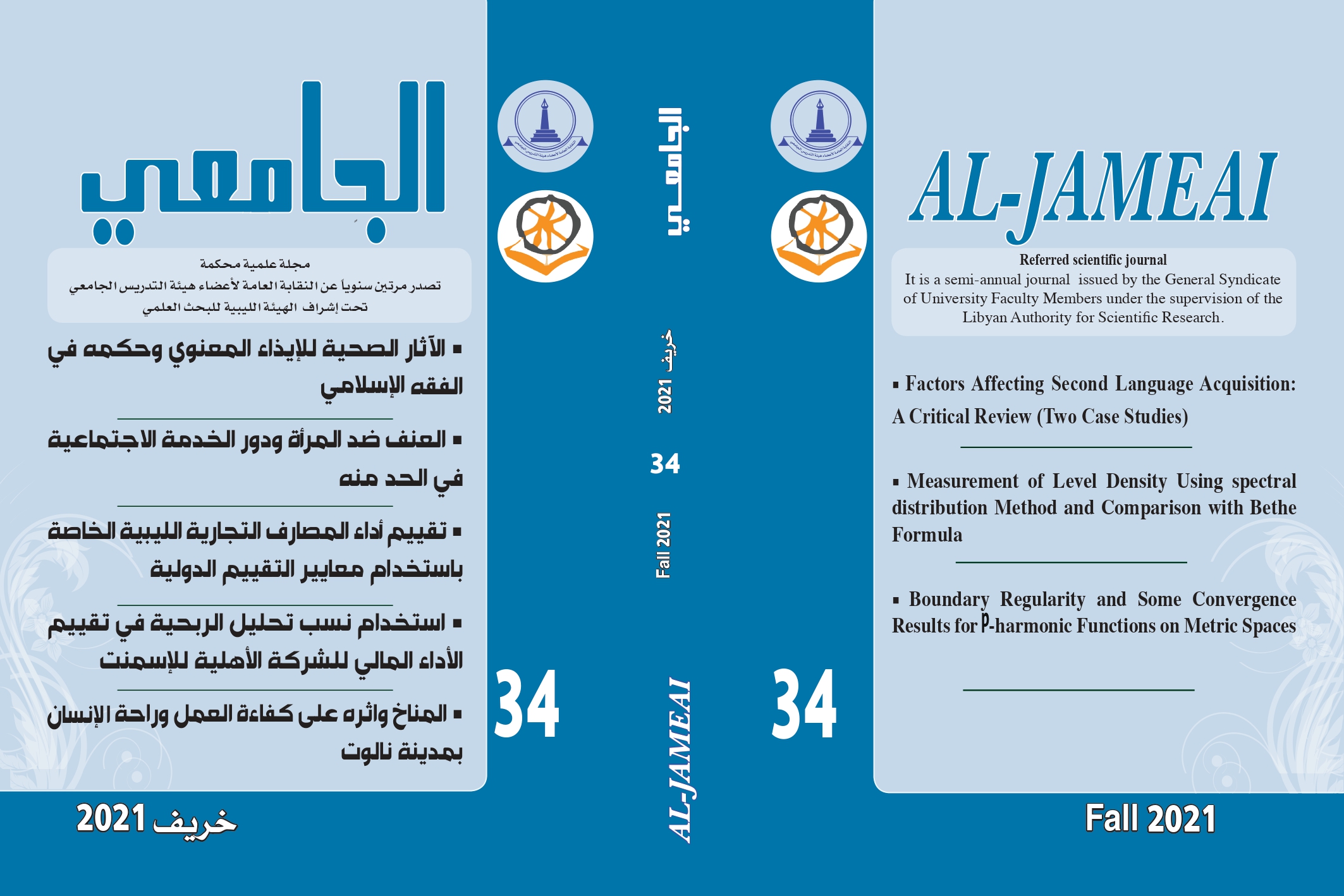الآثار الصحية للإيذاء المعنوي وحكمه في الفقه الإسلامي
Abstract
ملخص:
يتناول هذا البحث الإيذاء المعنوي.. لا بكونه إيذاء معنويٌ مع عِظَمِ شأنه ، فقد يمتد هذا الأَثر إلى أضرار صحية خطيرة .. تارةً تكون نفسية ، وأخرى عضوية ، ولا تختلف هذه الجرائم عن غيرها من الجرائم من حيث عدَّها جريمةً نظراً للتقارب الشديد بين الآثار المترتبة على كليهما ، وإنما الخلاف بينهما يكمن في أداة الجريمة، ثم إن الشريعة الإسلامية لم تحدد للإيذاء المعنوي عقوبة حدَّية .. بل جعلت له عقوبات تعزيرية يحددها ويختارها القاضي بما يراه مناسباً لحال الجاني وفعله الضآر.. مراعياً القواعد الشرعية العامَّة ، ومناسباً للردع والتأديب.
Abstract:
Moral abuse can be defined as victimization. It is the situation which an imperceptible tool is used, but, there is harm in it. As the perpetrator and victim are present in it. These crimes are not different from other crimes in terms of being considered a crime due to the close proximity between the effects of both. Thus, the difference between these two types of crime lies in the instrument of the crime. The Islamic Sharre"ha ( law) does not specify a punishment for moral harms. Rather, it made a punishment for the rulers to choose what they deem appropriate for discouragement and discipline.
Downloads









